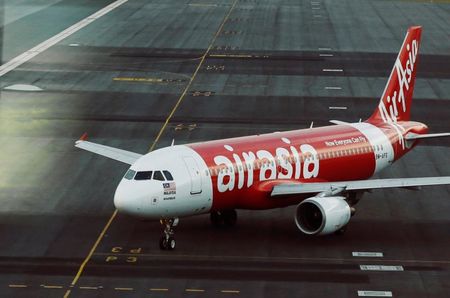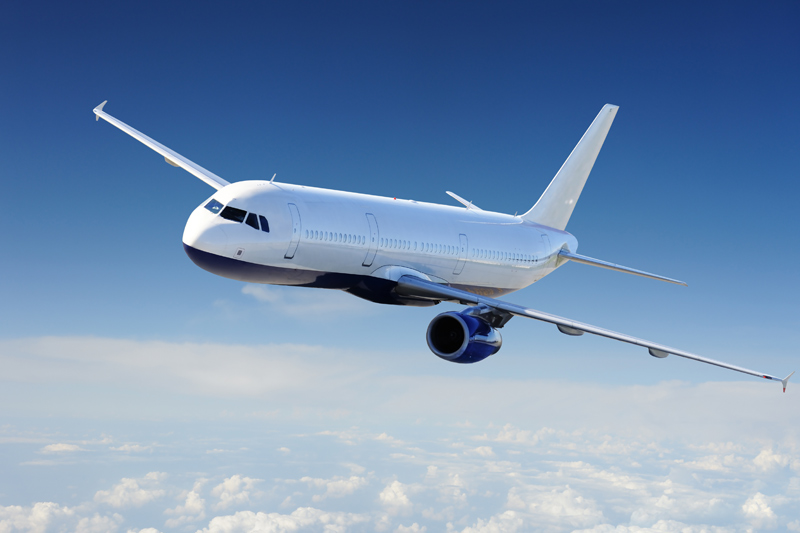By Anshuman Daga and Tim Hepher SINGAPORE/PARIS (Reuters) - From Scandinavia to Southeast Asia, low-cost airlines have ordered record numbers of planes in recent years, redefining the jet industry. Now they plan to lease out scores of their new planes, re-ordering the aviation business all over again.
Between them, Indonesia's Lion Air, Malaysia's AirAsia (KL:AIRA) and Norwegian Air Shuttle (OL:NWC) have ordered more than 1,400 Airbus (PA:AIR) and Boeing (N:BA) jets, worth about $140 billion at current list prices. They're about to test the growing market for rented planes, competing with established finance firms that lease out aircraft to cash-strapped carriers from China to the United States.
Jet makers and the finance companies which dominate aircraft leasing question whether budget airlines have the know-how to succeed, and some in the industry wonder whether they have simply ordered more planes than they need. But the low-cost carriers' sights are trained on new revenue streams, and net profit margins of about 20 percent enjoyed by global aircraft lessors - well above the airline industry average.
"It's the leasing companies that have made money in the last 10 years, not the airlines," Norwegian Air Shuttle's chief executive Bjorn Kjos told Reuters in a recent interview, referring to lessors who buy 30-40 percent of Airbus and Boeing planes. "They have a fantastic bottom line. They earn all the money the airlines should have earned."
For would-be lessor budget carriers, whose orders have boosted aircraft production and secured thousands of jobs, renting out planes provides both insurance against a downturn and diversified revenues. Though such business remains in its infancy, it could also help them hedge currency risk, bringing in revenue in dollars that can also be used to buy jets.
With over 900 jets worth $96 billion at current list prices on order or already delivered between them, Lion Air and Norwegian Air Shuttle in particular plan to become active in leasing. The trend has fueled concern that scores of jets could boomerang back onto the market, undercutting plane values and disrupting the global industry.
To some, such moves confirm suspicions that too many planes have been sold to airlines that don't need them as Airbus and Boeing jostle for market share.
"When people realize demand may not be as believed, things change. Looking for alternative things to do is one of the possible indicators of aircraft over-ordering," said Adam Pilarski, senior vice president at U.S. consultancy Avitas.
NEW BREED
Airlines often rent out unused planes, when needed, to manage fleets. But few have successfully moved into leasing for its own sake, and many that have tried, like Singapore Airlines Ltd (SI:SIAL), eventually exited.
What has changed is that low interest rates, high fuel prices in the recent past and growth in emerging markets have encouraged the new breed of budget carrier to place huge orders. Last week India's IndiGo followed suit with a record provisional Airbus deal.
Add to this relentless Airbus-Boeing competition, and many say there hasn't been a better time to buy new jets at potentially huge bargains.
"I am very confident that there aren't many leasing companies in the world that have a better purchase price than us," Norwegian CEO Kjos said.
"When you purchase 100 aircraft you can get a fair discount. If you purchase 250 you get an even better discount. There aren't that many leasing companies that purchase 250."
Lion Air's Singapore-based lessor, Transportation Partners, aims to ramp up third-party leasing in 2015 and 2016 with a focus on China, Brazil, Japan and the United States, chief operating officer John Duffy told Reuters."We are in some respects, the strategic hedge or the pressure valve. If planes coming into the group are identified as being surplus to requirements, then we have the right to lease them anywhere," Duffy said at an industry gathering.
AirAsia started a leasing unit last month, aiming to form a venture with a leasing investor. "People are looking for good rates of return with low risk. The asset class of airplanes is becoming a good asset class," Chief Executive Tony Fernandes told Reuters recently. The unit is expected to lease jets both to affiliated airlines and externally.
LEASING RISKS
If successful, the low-cost carriers could in theory take business away from traditional lessors, particularly smaller players. That could in turn put pressure on lessors to cut their rates.
"The historical success of airlines-as-lessors is mixed at best, but if these companies aggressively grow their leasing fleets we believe it could put marginal pressure on lease rates," Wells Fargo analyst Gary Liebowitz said in a report in August.
Leasing executives are quick to flag potential risks. They say theirs is a highly specialized business in which problems like having too many jets grounded between rentals, or the wrong funding structure, can quickly escalate.
"The skill sets that are needed to operate an efficient and profitable leasing company are not necessarily the same skills you may have when running an airline," said Jeffrey Knittel, president of CIT Transportation, a leasing unit of U.S. insurer CIT (N:CIT). Besides, some airlines are seen as reluctant to lease from competitors if that means sharing confidential data.
Jet makers are meanwhile aware that traditional lessors remain among their most influential and loyal customers.
"I do not encourage our customers to set up leasing companies," Airbus sales chief John Leahy said on the sidelines of a conference. "The leasing model is a different model...I don't think airlines running part-time leasing companies is a good alternative."
Neither Airbus nor Boeing commented on specific airlines.
For Boeing, "The better question is whether this practice is practical," said marketing vice president Randy Tinseth. "Leasing companies have infrastructure to support the placement, contracting, configuration and technical management of the assets – airlines do not."

(Additional reporting by Alister Doyle in OSLO and Siva Govindasamy in SINGAPORE; Editing by Kenneth Maxwell)
